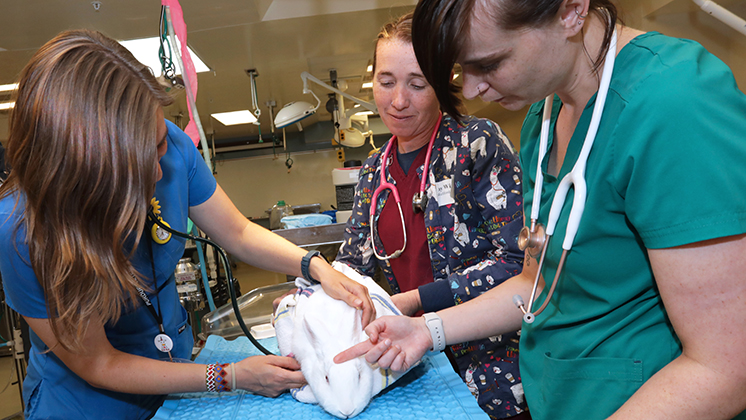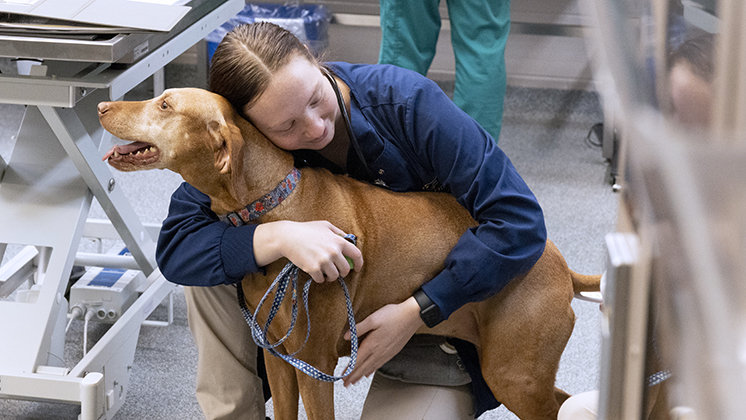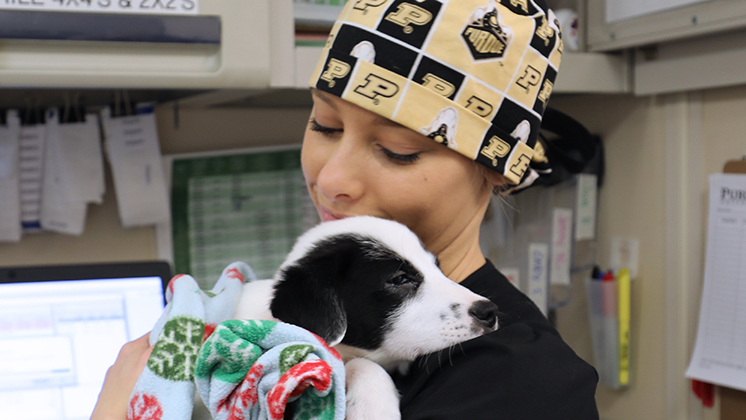What Certifications Can I Get as a Vet Tech/Nurse?

by Kelsey Wirt, MS, LVT and Josh L. Clark, MS, RVT
As a veterinary technician/nurse, earning additional certifications can enhance your skills, improve job prospects, and possibly increase your earning potential. After obtaining your credentials, you may consider furthering your education in specific areas of veterinary medicine.
Veterinary Technician Specialist (VTS)
The National Association of Veterinary Technicians in America (NAVTA) offer Veterinary Technician Specialist (VTS) certifications in areas including:
- Anesthesia & Analgesia
- Behavior
- Clinical Pathology
- Clinical Practice
- Dentistry
- Dermatology
- Diagnostic Imaging
- Emergency and Critical Care
- Equine Nursing
- Internal Medicine
- Laboratory Animal Medicine
- Nutrition
- Ophthalmology
- Physical Rehabilitation
- Surgery
- Zoological Medicine
Each VTS specialty has its own requirements, which typically include a set amount of work experience in the specialty area, completion of a skills list, case logs or case reports, and passing a specialty examination.
Fear Free Certified Professional
The Fear Free certification program is designed to alleviate fear, anxiety, and stress in pets during veterinary visits. The program equips vet techs with the knowledge and tools to handle pets in a way that reduces fear and stress. This certification is becoming more popular as more clients and veterinary staff look to improve the overall experience for the pet and the client.
Rehabilitation
There are a few options for veterinary technicians/nurses that would like to obtain certification(s) specific to rehabilitation. The University of Tennessee offers three different certifications: Certified Canine Rehabilitation Practitioner (CCRP), Certified Equine Rehabilitation Program (CERP), Certified Canine Fitness Trainer (CCFT).
Another option specific to canines is available through the Canine Rehabilitation Institute called the Certified Canine Rehabilitation Veterinary Technician or Nurse (CCRVT or CCRVN).
Certified Veterinary Pain Practitioner (CVPP)
Offered by the International Veterinary Academy of Pain Management (IVAPM), this certification focuses on pain management in animals, a critical aspect of veterinary care. The program is open to licensed veterinary professionals with a certain amount of experience. This certification does require an application process.
Certified Veterinary Practice Manager (CVPM)
For vet techs interested in practice management, the Veterinary Hospital Managers Association (VHMA) offers this certification. It involves studying areas like human resources, law and ethics, marketing, organization, and finance in relation to veterinary practice.
Learn more about becoming a CVPM
RECOVER
The RECOVER certifications are for veterinary professionals who want to gain knowledge and skills regarding veterinary CPR. There are two options for certification: Basic Life Support (BLS) and Advanced Life Support (ALS). This program is accredited through the American College of Veterinary Emergency and Critical Care.
Learn more about obtaining the RECOVER certification
Remember, the need for additional certifications will depend on your career goals and the requirements of potential employers. Each certification requires a significant investment of time and often money, so it's crucial to choose the one that aligns best with your career path. Keeping up with continuing education to maintain these certifications is essential.
Start Your Veterinary Technician Journey
Find your calling as a Purdue Veterinary Technician!
Not quite ready to apply? Connect with us to learn more.
Suggested Articles

What is the Difference Between a Vet Tech and a Vet Assistant?
Delve into the distinct roles of veterinary technicians and veterinary assistants in animal healthcare. Highlighting differences in education, job duties, scope of practice, and compensation, this guide offers a clear comparison to help aspiring professionals choose their best-fit career path in veterinary medicine.
Read more
Comprehensive Guide to Vet Tech
Dive into the world of vet techs with our all-encompassing guide. Explore education, tasks, career paths, challenges, and future trends. Featuring real-life insights and resources for aspiring animal healthcare professionals.
Read more
Is Being a Vet Tech/Nurse Stressful?
Explore the physical and emotional challenges of being a vet tech, and discover effective strategies to manage and mitigate stress in this rewarding profession.
Read more
